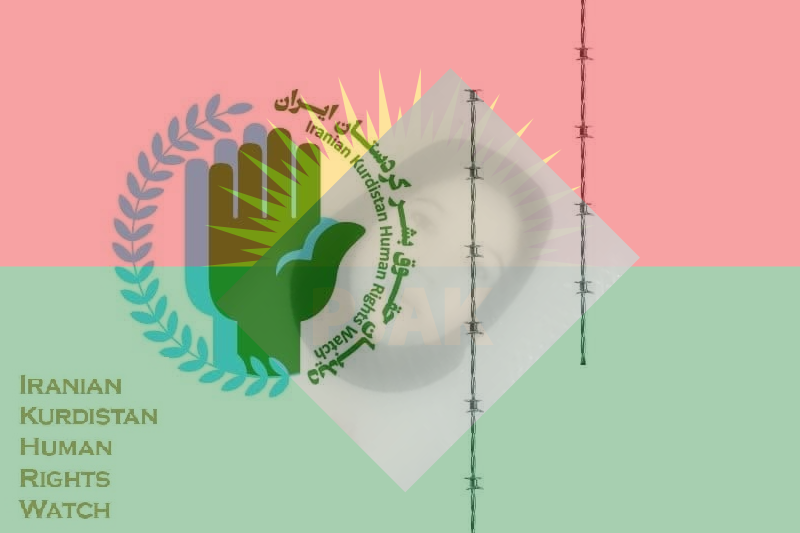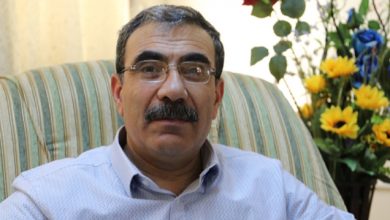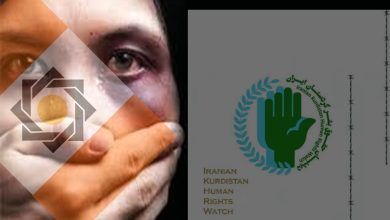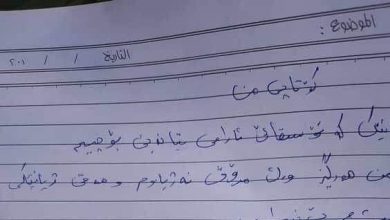IKHRW reporter’s subject today is Mozhdeh (Somayeh) Rajabi.
According to IKHRW in Kamyaran, one of the key factors in recruitment of new deceived members into Kurdish armed groups, especially PJAK, is the exploitation of the members’ life problems and deceiving them. PJAK attracts its members, especially women, by promising to solve problems and provide free space for intellectual, political, and social activities. On the other hand, some women in Kurdish areas easily become members of these armed groups to escape their unsuccessful experiences in married life, forced marriages, the naive idea of traveling to Europe for a better life, and… In fact, social issues and cultural damages in Kurdish areas and the view towards women and their rights are one of the important factors of deceiving members and their entry into PJAK. In fact, part of the appeal of PKK for girls and women is not related to the group itself and its structures and ideology, but rather to the Kurdish society’s behavior and probably the long-term humiliation and oppression of women and their perception as secondary gender citizens. Therefore, PKK initiated war against the Turkish government with this human support. However, now and after about 40 years from the establishment of the PKK, an appropriate opportunity has arisen to examine the behavior of this group towards women and the position of girls and women in ideologies of Öcalan.
IKHRW reporter’s subject today is Mozhdeh (Somayeh) Rajabi, born in 1995, who has a history of membership in the PJAK group. Admitting due to family issues arising from two unsuccessful marriages, in an illegal manner, she left the country in August 2017 and joined the terrorist group PJAK. She surrendered herself in December 2021 and returned to the country.
IKHRW reporter: Ms. Rajabi! What led you to join the PJAK?
Ms. Rajabi: Only family problems compelled me to make this decision. I was aware of the difficult living conditions in PJAK; however I entered PJAK to escape the problems of life and forget the two unsuccessful marriage experiences. Members of the PJAK came to our village and talked about their life. When I told them about my problems, they said “You can come with us and have a comfortable life among us.” We are all equal.
IKHRW reporter: How could they convince you that life in the mountains is better than life in the village?
Ms. Rajabi: They said women are free among us, not slaves as in society, there is no one to force you and you can live very comfortably. Attention should be paid to the fact that considering the structure of the Kurdish society, especially in difficult and rural areas such as our village, women generally live and grow in a male-dominated society. Attractive slogans of the PKK/PJAK emphasizing equality and the role of women in building an ideal society and granting them positions have attracted many women and girls to this group.
IKHRW reporter: After deciding to join, how did you leave the country and where did you go?
Ms. Rajabi: When I decided to join the Peshmerga, I crossed the border with them and went to the city of Penjwen. After that, they sent me to the Assos region for training. As I left unlawfully, all were carried out by PJAK forces.
IKHRW reporter: As you arrived, how were the living conditions?
Ms. Rajabi: I knew a little about how they lived. I knew they lived in the mountains. I didn’t mind the living conditions in PJAK, I just wanted to escape from my own life. I thought I would find better things there, but it really wasn’t like that.
IKHRW reporter: What did they teach you there?
Ms. Rajabi: Most of the classes were ideological and then followed by military training. After classes, some were engaged in cooking and baking bread.
IKHRW reporter: During the time you were there, did it ever happen that you became weary of life there and expressed your intention to return?
Ms. Rajabi: Honestly, it was difficult to talk about returning to Iran and leaving the group there, because we would immediately be imprisoned on charges of treason and being a traitor. In fact, it seems that many were tired of being in the mountains and the harsh and repetitive life without sufficient facilities; however, they did not have the courage to express it. The reality is that I had planned to escape many times from the early days, but unfortunately, I regretted due to the lies they told us. But I could no longer tolerate staying there and intensely missed my family. For this reason, one night while on guard duty, I was able to quickly escape. Fortunately, contrary to the lie they told us there, they did not torture or imprison us, just some questions. I express gratitude to God that I live alongside my parents and assist them in agricultural work.






